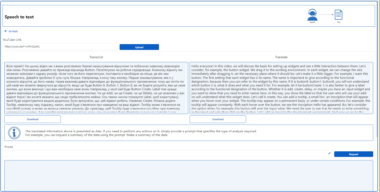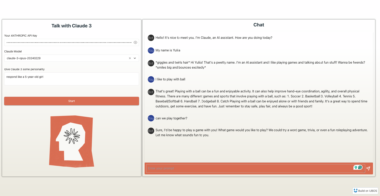Sequential Questioning MCP Server
A specialized server that enables LLMs (Large Language Models) to gather specific information through sequential questioning. This project implements the MCP (Model Control Protocol) standard for seamless integration with LLM clients.
Project Status

The Sequential Questioning MCP Server is now complete and ready for production deployment. All planned features have been implemented, tested, and documented.
Features
- Sequential Questioning Engine: Generates contextually appropriate follow-up questions based on previous responses
- MCP Protocol Support: Full implementation of the MCP specification for integration with LLMs
- Robust API: RESTful API with comprehensive validation and error handling
- Vector Database Integration: Efficient storage and retrieval of question patterns
- Comprehensive Monitoring: Performance metrics and observability with Prometheus and Grafana
- Production-Ready Deployment: Kubernetes deployment configuration with multi-environment support
- High Availability: Horizontal Pod Autoscaler and Pod Disruption Budget for production reliability
- Security: Network policies to restrict traffic and secure the application
Documentation
- API Reference
- Architecture
- Usage Examples
- Deployment Guide
- Operational Runbook
- Load Testing
- Deployment Verification
- Final Deployment Plan
- Release Notes
Getting Started
Prerequisites
- Python 3.10+
- Docker and Docker Compose (for local development)
- Kubernetes cluster (for production deployment)
- PostgreSQL 15.4+
- Access to a Qdrant instance
Quick Start
The easiest way to get started is to use our initialization script:
./scripts/initialize_app.sh
This script will:
- Check if Docker is running
- Start all necessary containers with Docker Compose
- Run database migrations automatically
- Provide information on how to access the application
The application will be available at http://localhost:8001
Local Development
Clone the repository
git clone https://github.com/your-organization/sequential-questioning.git cd sequential-questioningInstall dependencies
pip install -e ".[dev]"Set up environment variables
cp .env.example .env # Edit .env file with your configurationRun the development server
uvicorn app.main:app --reload
Docker Deployment
docker-compose up -d
Database Setup
If you’re starting the application manually, don’t forget to run the database migrations:
export DATABASE_URL="postgresql://postgres:postgres@localhost:5432/postgres"
bash scripts/run_migrations.sh
Kubernetes Deployment
Development Environment
kubectl apply -k k8s/overlays/devStaging Environment
kubectl apply -k k8s/overlays/stagingProduction Environment
kubectl apply -k k8s/overlays/prod
See the Final Deployment Plan and Operational Runbook for detailed instructions.
Monitoring
Access Prometheus and Grafana dashboards for monitoring:
kubectl port-forward -n monitoring svc/prometheus 9090:9090
kubectl port-forward -n monitoring svc/grafana 3000:3000
CI/CD Pipeline
Automated CI/CD pipeline with GitHub Actions:
- Continuous Integration: Linting, type checking, and testing
- Continuous Deployment: Automated deployments to dev, staging, and production
- Deployment Verification: Automated checks post-deployment
Testing
Run the test suite:
pytest
Run performance tests:
python -m tests.performance.test_sequential_questioning_load
Troubleshooting
Database Tables Not Created
If the application is running but the database tables don’t exist:
- Make sure the database container is running
- Run the database migrations manually:
export DATABASE_URL="postgresql://postgres:postgres@localhost:5432/postgres" bash scripts/run_migrations.sh
Pydantic Version Compatibility
If you encounter the error pydantic.errors.PydanticImportError: BaseSettings has been moved to the pydantic-settings package, ensure that:
- The
pydantic-settingspackage is included in your dependencies - You’re importing
BaseSettingsfrompydantic_settingsinstead of directly frompydantic
This project uses Pydantic v2.x which moved BaseSettings to a separate package.
Contributing
Contributions are welcome! Please see CONTRIBUTING.md for guidelines.
License
MIT License
Contact
For support or inquiries, contact support@example.com
Sequential Questioning MCP Server
Project Details
- bitgeese/sequential-questioning
- Last Updated: 4/28/2025
Recomended MCP Servers

The Neuro-Symbolic Autonomy Framework integrates neural, symbolic, and autonomous learning methods into a single, continuously evolving AI agent-building...

MCP server which allow LLM in agent mode to analyze image whenever it needs

A Model Context Protocol (MCP) server that provides Trivy security scanning capabilities through a standardized interface.
Allow LLMs to control a browser with Browserbase and Stagehand

Tiny TODO MCP is a specialized server that implements the Model Context Protocol (MCP), allowing AI assistants to...
An extensible TypeScript toolkit that simplifies complex EVM blockchain interactions into composable, intent-based tools. Provides a unified, type-safe...
A MCP server for our beloved terminal multiplexer tmux.

这是个示范


 From vibe coding to vibe deployment. UBOS MCP turns ideas into infra with one message.
From vibe coding to vibe deployment. UBOS MCP turns ideas into infra with one message.





